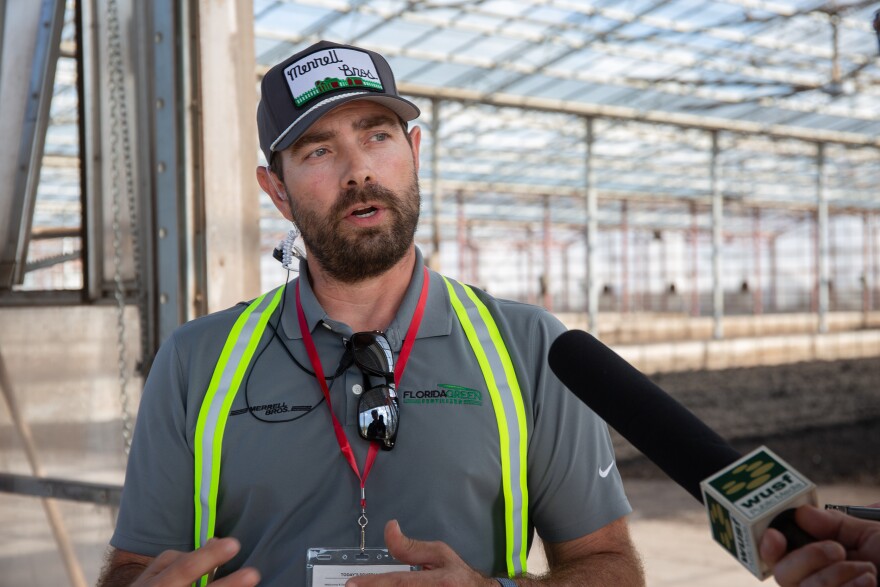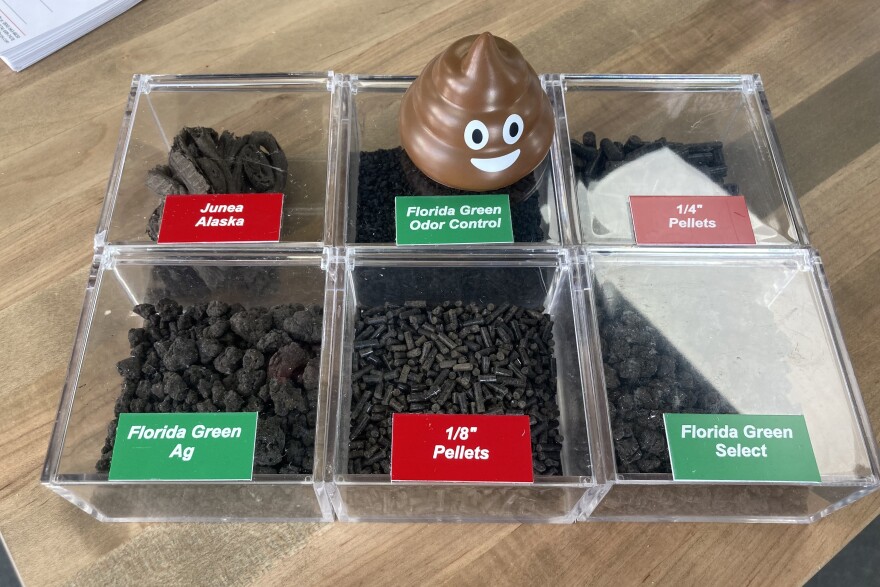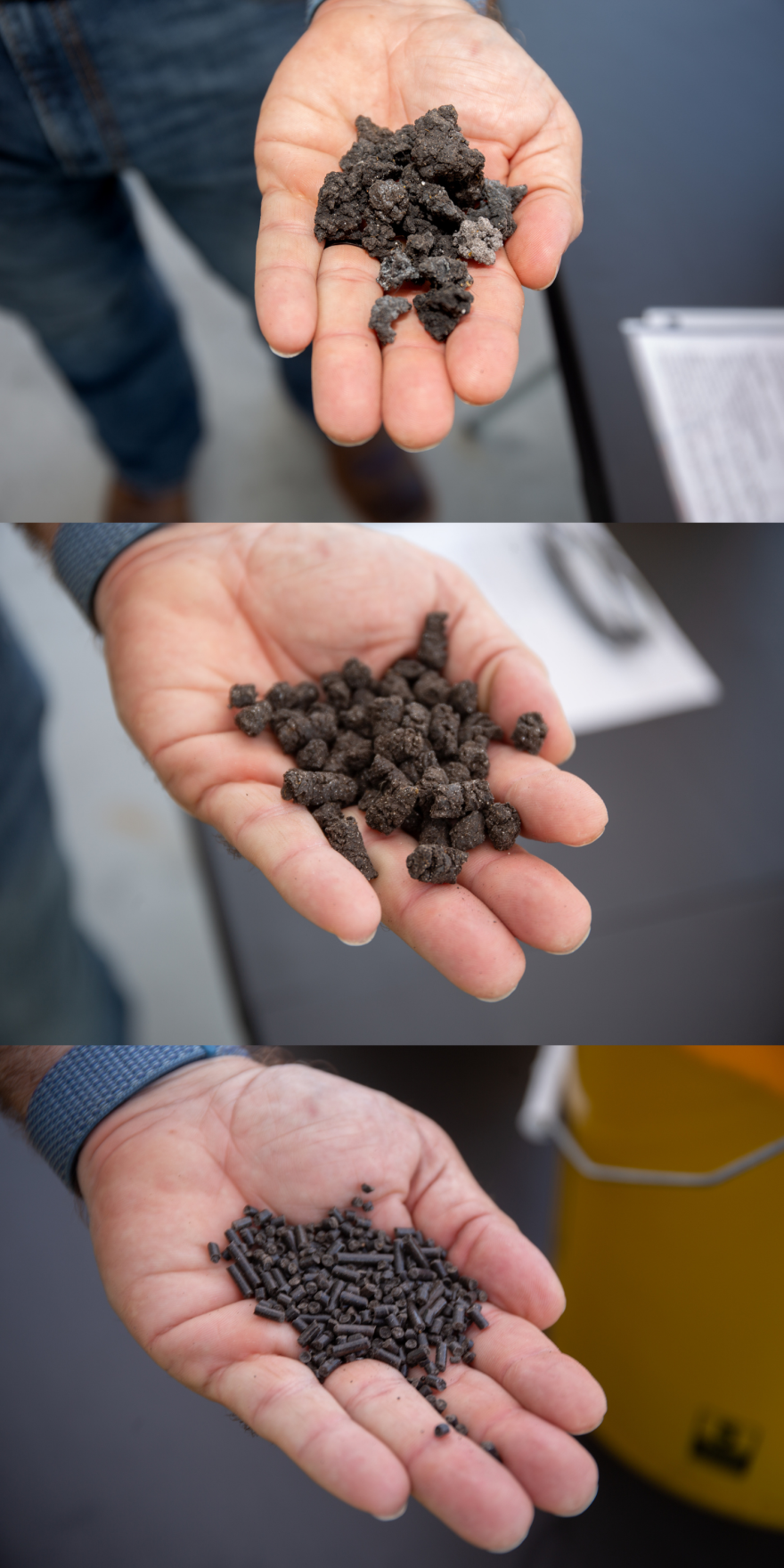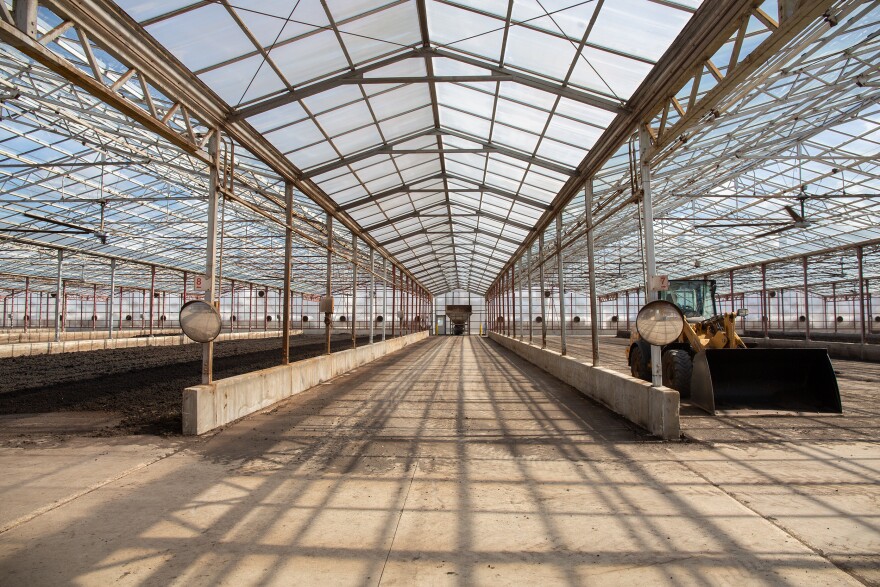You probably don’t think about what happens after you flush your toilet or send whatever swirling down your sink. But much of that stuff is laden with nutrients and chemicals that all too often end up fouling local waterways. We take a look at a new partnership that is turning Pasco County's solid waste into bagged fertilizer.
Take a walk through the fertilizer plant in northern Pasco and the smell is the first thing you notice.
A row of 20 odor control towers using activated charcoal keeps that natural perfume to a minimum. It's not overwhelming, but it's always there.

“So we're walking to the Pasco County Biosolids treatment facility. This facility was a public private partnership with Pasco County and Merrell Brothers,” said Ian Petrocco, the construction project manager.
“We take the dewatered cake material coming from the wastewater treatment plant and turn it into a class A class AA fertilizer product,” he said.
By cake, he means the sludge that is left over after your sewage is turned back into clear water at a treatment plant. And class A or AA fertilizer is highly treated and can be applied with minimal restrictions.
ALSO READ: Sewage often becomes fertilizer, but the issue is it's tainted with PFAS
The first step is done in a 7-acre greenhouse complex.
“We use the greenhouses to drive off a bulk of that moisture and so it's utilizing very little gas inputs, electrical inputs, and we're just using the abundant Florida sunshine to drive off that water,” Petrocco said.
It takes about three weeks before it's dry enough to go to the "bakery." There, all that stuff is "pasteurized" at 158 degrees for a half-hour and made into pellets of fertilizer sold as FloridaGreen.

"We're typically sending out anywhere between 200 and 800 tons at a time to different agricultural markets," Petrocco said, "whether that's sod fields, hay growers, cattle ranchers, or citrus groves."
They have three separate end products that are ground down for uses from agricultural spreaders to lawn and garden fertilizer.
It's all intended to fix a problem with the unappealing name — of sludge.
Most wastewater treatment plants send their sludge to spray fields where it is dispersed by irrigation sprinklers.
But heavy rains and hurricanes have been known to spread those concentrated nutrients, fouling waterways. Proponents say this first-of-its-kind partnership between Pasco and the company is a “greener” way of getting rid of waste.
But what about all those chemicals and hormones and prescription drugs that get flushed?
Some of them are still there, said Beth Alvi of Audubon Florida.
“We don't know what we're introducing into the environment,” Alvi said. “ So while class AA is treated for bacteria and pathogens and is sanitized and all of that, there is still that one concern that's out there. We don't know enough about it.”
And what about PFAS? Those so-called "forever chemicals" are still there, in microscopic portions. Scientific studies have shown that exposure to PFAS may be linked to harmful health effects in humans and animals.
ALSO READ: PFAS 'forever chemicals' could be contaminating millions of acres of farmland
“The requirements for this material does not include any kind of chemical processing that denatures these contaminants or these substances like PFAS,” Alvi said. “And what is acceptable limits? That's got to be set by EPA and they're sort of still working on it. We don't have those numbers.”
There isn’t an efficient way to remove the nearly 15,000 types of PFAS from sewage, so they remain in the biosolids.
Ted Merrell is one of the company's owners. He said decades of testing has been done on biosolids by the federal EPA and his company measures for them in its products.
“Used to, you wouldn't have thought about having a result in a part per billion, but now we're having results in parts per trillion,” Merrell said. “And so when you think about the how well we can test things, it gives us the ability to address them in a different way.”

Alvi says one of the keys here is to not over-apply fertilizer, which can runoff into waterways during heavy rains.
The problem with traditional sludge is it’s given away and farmers tend to overuse it. Merrell says farmers are more apt to treat this as a commodity and not over-apply it.
“So a lot of it is about perception and putting it into a marketable quality product that people are going to treat like they would something they spent money on,” Merrell said. “Because they did.
And he said there has been such a demand for their fertilizer that they are in negotiations with several other cities and counties in Florida to do similar projects.
It may not be the perfect solution to their waste problem but many think it’s better than what’s being done now.





